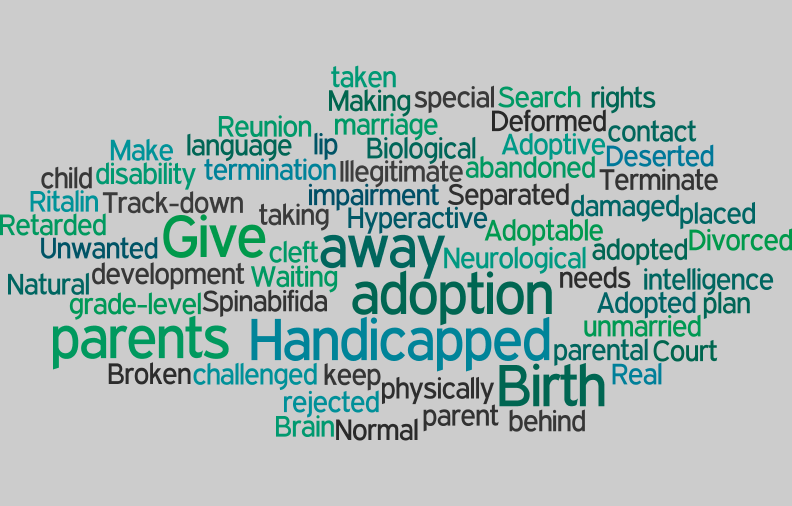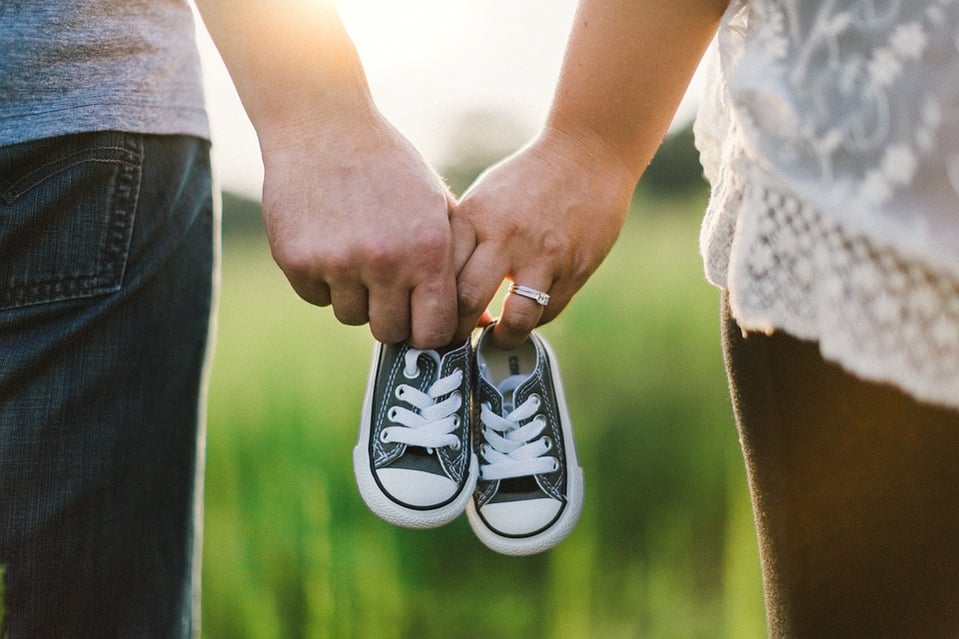In the past, adoption was largely treated as a secret that needed to be kept, and the language used to described the people and events involved in adoption was usually negative. In the last few decades, adoptions have become largely open and more honest. They are increasingly treated as a perfectly normal way to build a family, and adoptees are rarely in the dark about their origin story. Adoption has come a long, long way from the secretive ways of the past. The language the public uses to describe the people and events involved in adoption, however, still has some catching up to do. Many words and terms people commonly use are unintentionally hurtful, negative and imprecise and can serve to stigmatize and undervalue the experience and life story of birth parents, adoptees and their families.

One of our amazing powers as humans is the naming of things. Names convey more than just the literal meaning of the words we choose to use. They convey emotions, hierarchy, negativity, positivity, wantedness, unwantedness… Language is a powerful force, and making small changes to your language used when describing adoption can have a profound effect on the people who are most affected by adoption- birth parents, adoptees, and adoptive parents.
Here is a list compiled by the Texas Adoption Resource Exchange that does a good job providing many examples of positive adoption language:
|
POSITIVE LANGUAGE |
NEGATIVE LANGUAGE |
|
Birth parent |
Real parent |
|
Biological parent |
Natural parent |
|
Birth child |
Own child |
|
My child |
Adopted child |
|
Born to unmarried parents |
Illegitimate |
|
Terminate parental rights |
Give up |
|
Make an adoption plan |
Give away |
|
To parent |
To keep |
|
Waiting child |
Adoptable child |
|
Making contact with |
Reunion |
|
Parent |
Adoptive parent |
|
Search |
Track down parents |
|
Child placed for adoption |
Unwanted child |
|
Court termination |
Child taken away |
|
Child with special needs |
Handicapped child |
|
Was adopted |
Is adopted |
|
Two years behind in development |
Retarded (or other descriptive language) |
|
Spinabifida, cleft lip, or other specific condition |
Deformed |
|
Has disability or is physically challenged |
Handicapped |
|
Describe specifics--intelligence |
Normal or grade level |
|
Divorced |
Broken marriage |
|
Separated from parents or rejected |
Deserted or abandoned |
|
Is taking Ritalin |
Hyperactive |
|
Neurological impairment |
Brain damaged |
Although many organizations, social workers and authors have complied lists and charts like this one of positive adoption language, they should be used as a guide and not a rule book. Language is highly personal as well as being universally powerful. Ask the adoptees in your life what name they prefer to give their birth parents. Ask a birth mother if she prefers “first mother,” simply “mother,” or another term. If you are not part of an adoption triad, ask the people you know who are what they prefer to call certain people and events. Every adoptee and birth parent will have a different opinion and different preferences.
If you are a person who is not a birth parent, adoptee, or adoptive parent, it is important to remember that when it comes to who should be called what and how certain events should be described, your opinions are not the most important. Adoptees and birth parents have the right to choose the language which described their uniquie life story. Don’t be afraid to ask the people whose lives have been most affected by adoption what language they are comfortable using. They will be glad you did.




Let Us Know What You Thought about this Post.
Put your Comment Below.